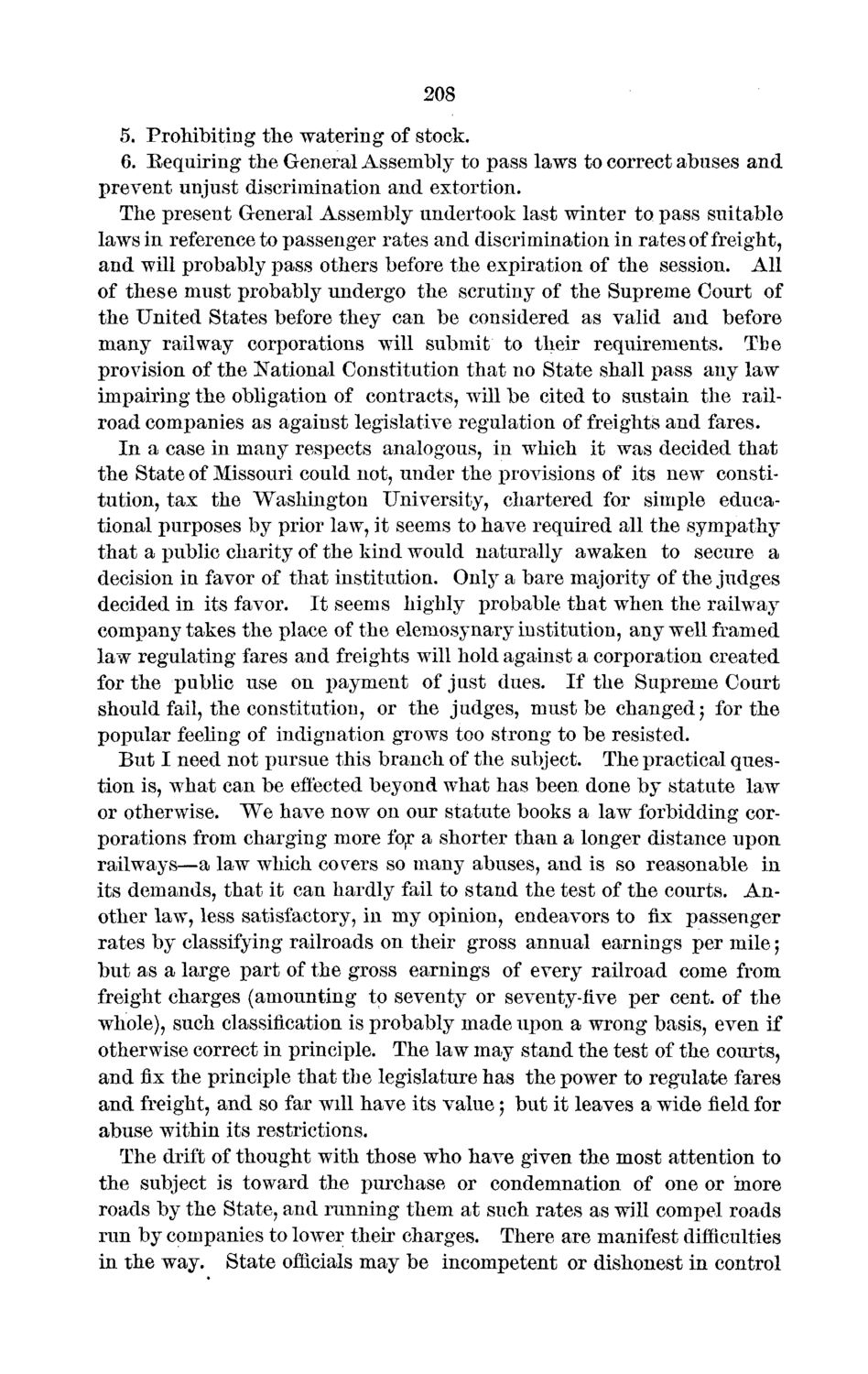| |
| |
Caption: Board of Trustees Minutes - 1872
This is a reduced-resolution page image for fast online browsing.

EXTRACTED TEXT FROM PAGE:
208 5. Prohibiting the watering of stock. 6. Requiring the General Assembly to pass laws to correct abuses and prevent unjust discrimination and extortion. The present General Assembly undertook last winter to pass suitable laws in reference to passenger rates and discrimination in rates of freight, and will probably pass others before the expiration of the session. All of these must probably undergo the scrutiny of the Supreme Court of the United States before they can be considered as valid and before many railway corporations will submit to their requirements. The provision of the Kational Constitution that no State shall pass any law impairing the obligation of contracts, will be cited to sustain the railroad companies as against legislative regulation of freights and fares. In a case in many respects analogous, in which it was decided that the State of Missouri could not, under the provisions of its new constitution, tax the Washington University, chartered for simple educational purposes by prior law, it seems to have required all the sympathy that a public charity of the kind would naturally awaken to secure a decision in favor of that institution. Only a bare majority of the judges decided in its favor. It seems highly probable that when the railway company takes the place of the elemosynary institution, any well framed law regulating fares and freights will hold against a corporation created for the public use on payment of just dues. If the Supreme Court should fail, the constitution, or the judges, must be changed; for the popular feeling of indignation grows too strong to be resisted. But I need not pursue this branch of the subject. The practical question is, what can be effected beyond what has been done by statute law or otherwise. We have now on our statute books a law forbidding corporations from charging more for a shorter than a longer distance upon railways—a law which coders so many abuses, and is so reasonable in its demands, that it can hardly fail to stand the test of the courts. Another law, less satisfactory, in my opinion, endeavors to fix passenger rates by classifying railroads on their gross annual earnings per mile; but as a large part of the gross earnings of every railroad come from freight charges (amounting to seventy or seventy-five per cent, of the whole), such classification is probably made upon a wrong basis, even if otherwise correct in principle. The law may stand the test of the courts, and fix the principle that the legislature has the power to regulate fares and freight, and so far will have its value ; but it leaves a wide field for abuse within its restrictions. The drift of thought with those who have given the most attention to the subject is toward the purchase or condemnation of one or more roads by the State, and running them at such rates as will compel roads run by companies to lower their charges. There are manifest difficulties in the way. State officials may be incompetent or dishonest in control
| |